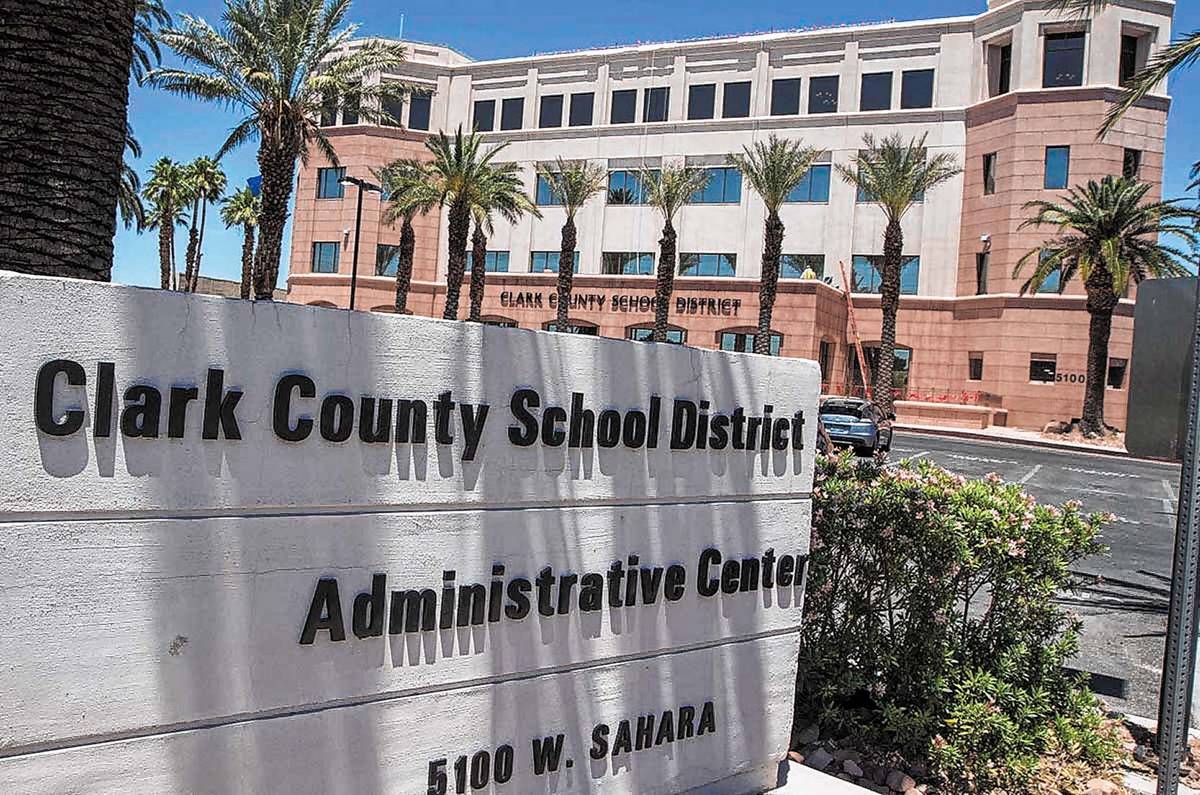Public comment will ring out at CCSD board meetings once more
The Clark County School Board will allow spoken public comments at its meeting Thursday for the first time since the pandemic shuttered the boardroom’s doors in March.
Under the method put in place when the board began to meet virtually, written comments were accepted and entered into the record but were not read at the meetings. Members of the public now have the option of leaving a recorded message no longer than 90 seconds, which will be played during the public comment period.
“I feel that the public has been fairly patient about waiting for us to be able to get to a place where they feel like their voices are really being heard,” board President Linda Cavazos said in announcing the new system.
The board has been criticized for offering only an email option for public comment during virtual meetings, and the issue was referenced in a lawsuit filed by parents seeking to reopen schools.
Cavazos and Trustee Danielle Ford were tasked with finding a new way to offer comment last year by then-board President Lola Brooks and worked with the district’s technology office to determine what was possible within the existing phone systems, Cavazos said.
Separate numbers are listed for comments on agenda items (702-799-1166) and non-agenda items (702-799-1177). And comments related to specific items before the board can be played during their appropriate hearing times.
The email option will still be available, Cavazos said, due by 2 p.m. the day of the meeting.
Ford credited Cavazos with making the new system a priority
In researching a new system, Ford said she looked into how the Clark County Commission and the Nevada State Legislature handled live public comment, and also found that other public entities had run into trouble for not finding a way to do so.
While there were lots of options, including some that offered live comment on a delay, Ford said they would have required an additional approval from the board and possibly delayed the implementation by a month or more.
The new system is based on what already existed in the boardroom, which was upgraded a few years ago, Ford said.
“We had options. We just had to make the decision,” she said. “If it’s not working or people are missing the real-time public comment, we’ll consider another option.”
Cavazos said there have been discussions about resuming in-person meetings, beginning with upcoming work sessions typically reserved for board governance business. The decision will be based in part on the capabilities of the Edward A. Greer Education Center, where meetings are held.
She acknowledged that failing to resume in-person meetings would look bad.
“If we ask our employees to go back in person, but we meet virtually, it’s not good public perception,” she said.
One of the first opportunities for the public to make their voices heard will be on a resolution regarding the safe storage of firearms. If passed, it would direct the superintendent to send a letter to families “that explains the importance of secure gun storage and the legal obligations to protect minors from accessing irresponsibly stored guns.”
The letter would need to be signed by parents and guardians during annual school registration.
The resolution states that “secure firearm storage is an essential component to any effective strategy to keep schools and students safe,” and address the role of firearms in school shootings, accidental shootings and suicides.
Cavazos said it’s meant to be nonpartisan, taking no position on gun ownership but instead addressing access to guns in the home.
With students learning from home at least part-time for the foreseeable future, Cavazos said she wants to help bolster their safety and prevent both intentional and unintentional incidents.
“We can’t say kids will never find the loaded gun in the drawer of the spare bedroom,” she said. “We found out hard the way they do.”
Also on the agenda is the approval of a $205,000 settlement to the family of a student receiving special education services at the district, whose case alleged he experienced “frequent and routine physical, verbal, and emotional abuse” from a teacher in 2006.
The board is also slated to hear a brief presentation on the 2021 amended final budget. Since the last presentation, the district has received Gov. Steve Sisolak’s budget recommendations, as well projections for how much Nevada schools are expected to receive in federal relief funding, but uncertainties about the impacts of the pandemic remain, according to the presentation.
Contact Aleksandra Appleton at 702-383-0218 or aappleton@reviewjournal.com. Follow @aleksappleton on Twitter.























